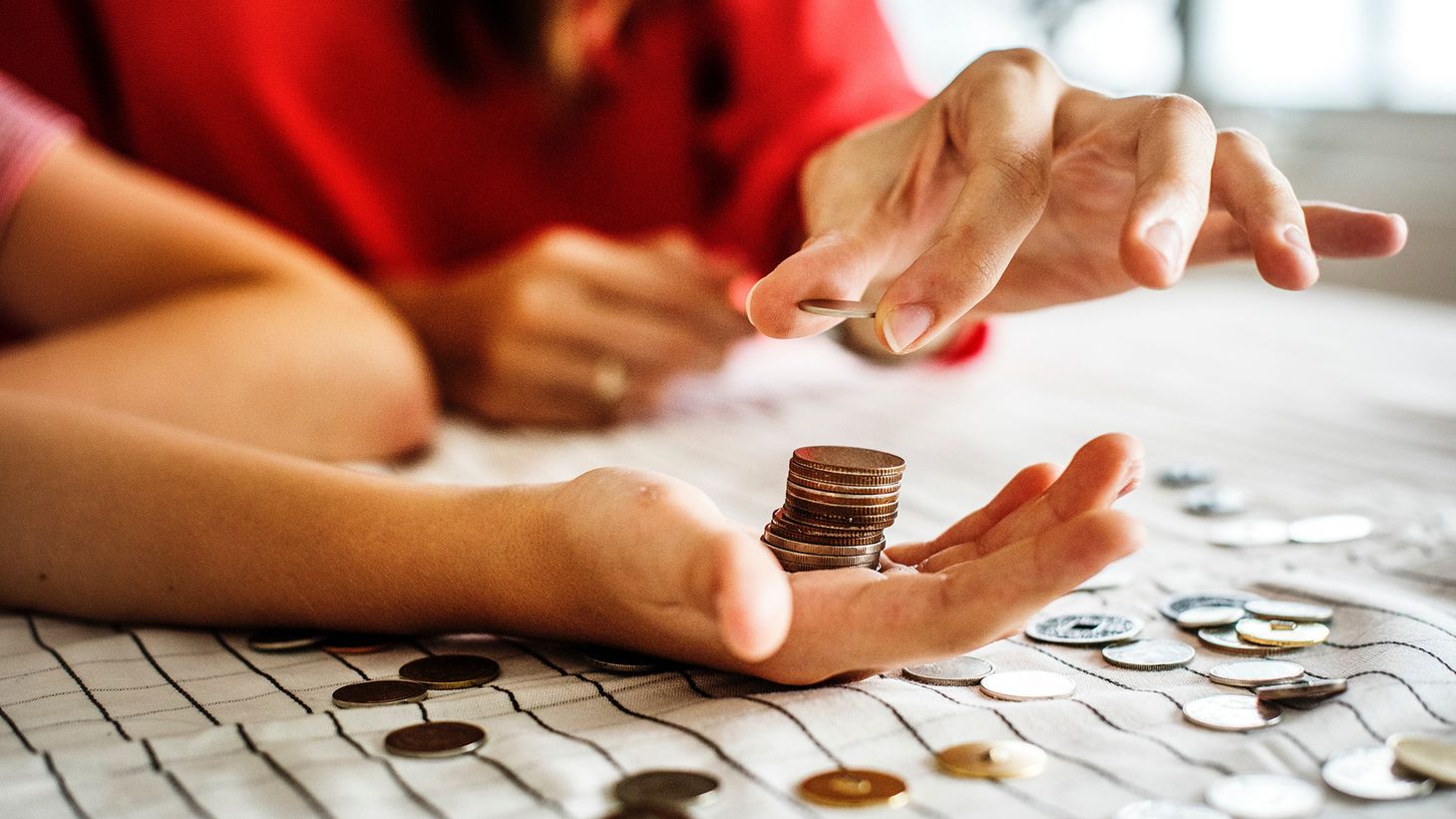It’s our job as parents, not only to make sure our kids can hold a fork, but also that they’ll be financial responsible when we’re not there to pick up the bill.
The fact is, we have record levels of household debt in Australia, including over $30 billion dollars in credit card debt, and the vast majority of us hard-working mums and dads will retire on less than we did when we received our first entry-level pay check.
In other words, today’s parents, with easy access to credit and a new reliance on paying with plastic, have lost the ability to effectively manage their own money.
Sadly, while most of us believe that having a “little bit left over each month” means we’re financially OK, what we’re often doing is modelling an inferior pathway for our kids to follow.
How did we get to this point? There’s no doubt about it. Keeping up with the Joneses is arguably harder than ever before. At no point in history have we had such a dependence on technology or had our private lives so visible to the outside world as we do today.
Read: Pocket money for kids: How to do it right
With one click of a button, our electronic devices can simultaneously transfer invisible money from one invisible account to another through online banking, as well as upload our highlights reel so our friends and family can see not just what we’re up to, but also how our “status” stacks up. Sure, this digital age has made our lives more connected and convenient, but it has also come at price.
Every time we tap-and-go with no explanation, we teach our kids that a plastic card is what buys us things.
Every time we tell the cashier to “put it on credit, thanks” we teach our kids that they can have whatever they want without first working for it.
And every time we try to keep up with the Joneses, we teach our kids—who always pay more attention to what we do than what we say—to value materialistic possessions over true, wholistic wealth.
The real cost? Our kids are learning our bad money habits. But that’s only half of it.
In the digital age they’re growing up in, only 8 per cent of all the money around the world is actually physical cash—the rest is digital money. Why’s that significant? Well, unless they’re exposed to physical money on a regular basis, our kids could miss the important lessons about the value of money itself, such as: What is it?, How does it work?, How do we earn it?, Why is it a limited resource?, Why do we make trade-offs with it? and so on.
Add to the fact that they’re a generation raised on immediate responses and short-term gratification and you gain a greater appreciation of the challenges of managing expectations.
The fact is, most households don’t generate enough money to have it all. Education is key—and by education we mean our kids need to understand the context, trade-offs and consequences of our decision-making surrounding money.
Teaching kids the value of money also means us parents need to understand the difference between what’s “our money” and what’s not, such as “debit” and “credit”.
Top 5 financial literacy tips for kids
We get that there’s complexity to each households’ solution, but as parents, we can improve how we manage our own money and open up a transparent dialogue that’s relevant to our kids, which they can comprehend and learn from.
1. Lead by example
Get your own finances in order by implementing a money management system, so you have a clearer picture and spend within your means
2. Teach them “stuff’ costs money
Let kids pay for things. If you’ve got physical cash, help them count out the total and hand it over to the cashier. Explain what’s happening when you use your debit card
3. Explain opportunity cost
“If you buy that Lego kit, you won’t have enough to buy the game console—the trade-off.”
4. Stress the importance of delayed gratification
Get them to save up for what they really want so they appreciate it more
5. Introduce them to compound interest when they are young
Teach your kids that money invested makes more money for you.
How helpful was this article?
Click on a star to rate it!
5 / 5. 1
Be the first to rate this post!
Bryce Holdaway and Ben Kingsley
Related posts
Subscribe
Receive personalised articles from experts and wellness inspiration weekly!

